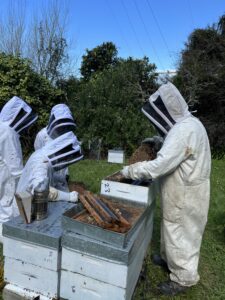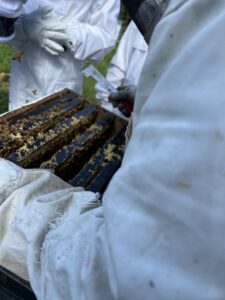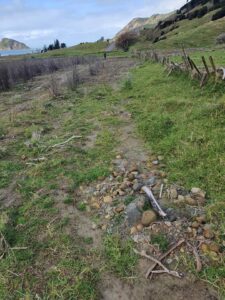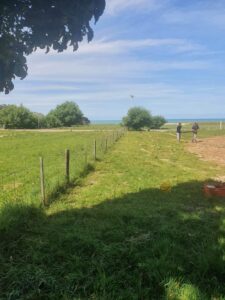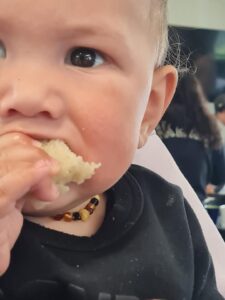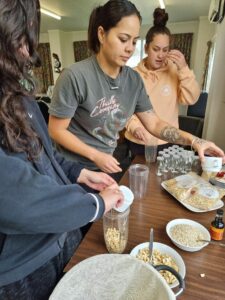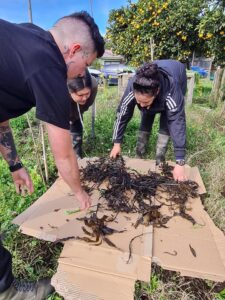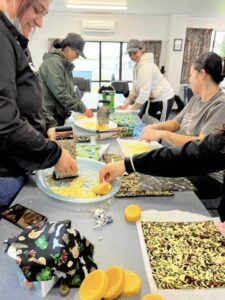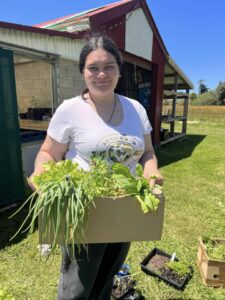In Te Tairāwhiti, our two Poutautoko, Karauria and Rawinia, have been busy organising learning opportunities for whānau to respond to the severe weather events that have struck the region, build resilience for the future, and reconnect with the maramataka Māori.
Throughout the year, 36 workshops were held across Ūawa and Tokomaru Bay on a range of topics to help people gain skills and self-belief to grow and gather kai, set up water and energy systems, undertake fence repair and river care, and begin beekeeping.
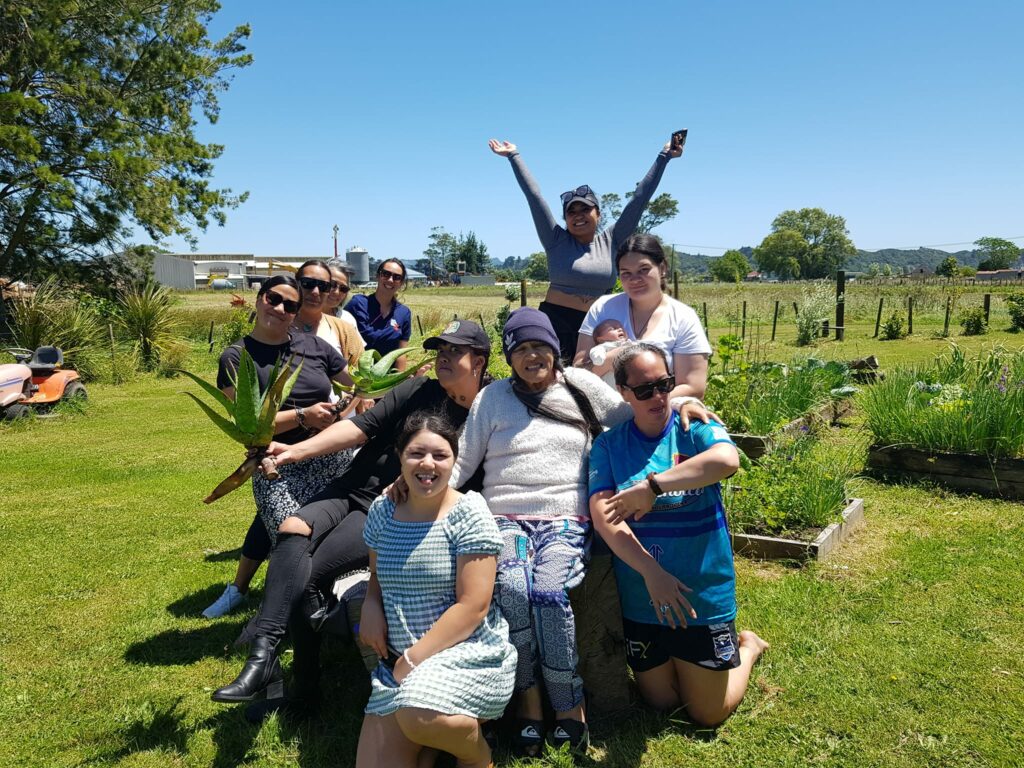
Te kuti rākau hua hei oranga whānau (pruning workshop)
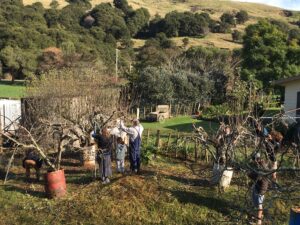
12 adults & 3 children participated in the workshop
Ngā whāinga or goals for this papa mahi were to maintain hand tools and discuss safe use of tools, identify signs to start pruning fruit trees, identify fruit trees and discuss specific pruning for the fruit tree.
The participants of this papamahi came from Ruatoria, Te Puia and Tokomaru bay. I am pleased report the success of this papamahi, by the end of the papamahi all participants were able to maintain and use their tools safely. They could identify the best time of the year to prune their fruit trees. They could also identify a range of fruit trees such as apples, peaches, grapes, figs, persimmons, feijoas, and other fruit trees. The group of participants have now got an understanding of fruiting wood and vegetive wood by ageing the wood and looking for fruiting buds. Through this they are now able to work out the best way to prune and shape their own fruit trees.
Whānau that attended this workshop expressed that we need more workshops like these – we have a lot of people that would really benefit from them. Another commented on how good it is to see people together “because of covid we haven’t been able to do anything together”.
”this is cool we need more wānanga like this, I can see other people coming forward to share their skills too”.
I must thank the Hughes whānau of Kaiawha rd for volunteering their orchard and papakainga as a learning space for this papa mahi.
Te rerenga mai o te rāwhiti (beekeeping workshops)
This papamahi was a collaboration with Hikuwai Honey, and saw 37 participants from whānau from the Tokomaru bay area come together to learn about beekeeping. The main goal was for participants to be able to maintain a hive or hives, not for commercial interests, but to help with pollination of nearby fruit trees. It goes without saying, that having a bit of sweet honey for the pantry was another key goal! Participants learnt how to use and maintain PPE (bee suit and cloves), use and maintain hive tools and smoker, discuss hive structure, check for hive health by identifying pest and diseases, identify the different bees and discuss their jobs within the hive, learn how and why queen rearing is important, and how to harvest honey.
The bulk of the participants that attended come from within and near the Tokomaru bay area, ranging from primary aged tamariki through to adults. As beekeeping changes with the seasons, these papamahi where held on a regular basis, at times on consecutive days. With this in mind some of the attendees were unable to attend all of the workshops, but I believe that the main goal of maintaining a hive is on its way to being achieved. The workshops will continue into the following year.
The workshops have been very helpful for my own learning as well, because I have gained more knowledge on top of what I have already experienced through having bees on my own property for the past 6 years.
I have to take the time to thank Hikuwai Honey and Kōkā Rhonda Milner for all the teaching and experiences to date, and for the use of their Bee Hives. E rere ana ngā hīhī o mihi. I also have to thank Earthwise for the financial support, we were able to purchase two bee suits and two hive tools. Tēnā koutou!
Mahinga māra (garden workshops and seedling distribution)
These workshops saw 19 adults and 12 tamariki from Tokomaru Bay learn about gardening and seedlings. These papamahi focused on whānau that have not had gardens before, but were keen to learn everything they could to produce healthy kai for their whānau.
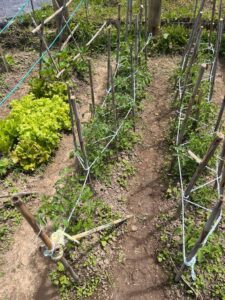 Participants learnt about:
Participants learnt about:
- maintaining hand and power tools and using them safely,
- identifying favoured location to set up a garden,
- noticing tohu (signs) for planting,
- identifying plants in the garden,
- building fences around gardens to stop stock and animal damage,
- using available resources to make structures for plants to grow up or on,
- noticing signs and symptoms of good and poor plant health and discussing options to remedy these.
Planning a small manageable garden was the first step. Through this mahinga māra project we were also able to germinate a variety of garden plants to distribute within Tokomaru bay to people who already had established gardens. The people who received or asked for plants responded well to this and in some cases offered plants or seedling back our way to either grow or pass on.
I look forward to expanding this mahi in the next growing season. It would be very beneficial to have a local producer of seedlings here in Tokomaru bay. At present people are traveling one and a half hours to Gisborne to purchase their seedlings. However, for this to work we would need to look into building both a greenhouse and a shade house. This could be something we could do in the near future.
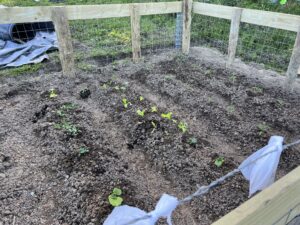
One whānau in particular took well to all the workshops, and feel they could easily expand their garden to grow other crops such as kūmara.
”This mahi has been awesome, we know we can do it now, we didn’t really even know where to start. Our whānau has really enjoyed the fresh tomatoes and sweet peas. We will definitely make our garden bigger next year (season)”.
Another whānau really expressed how helpful the workshops were for their husband and farther,
“this has been good for him, I can see growth in him too, he feels good providing good kai for his whānau“.
I believe the frequency of the visits or workshops played a big part in really pushing the whānau along as new knowledge and skills were learned every week or two. The whānau also had new questions every week as they noticed changes in their gardens. If these were only one-off workshops, I feel they would have given up on their gardens.
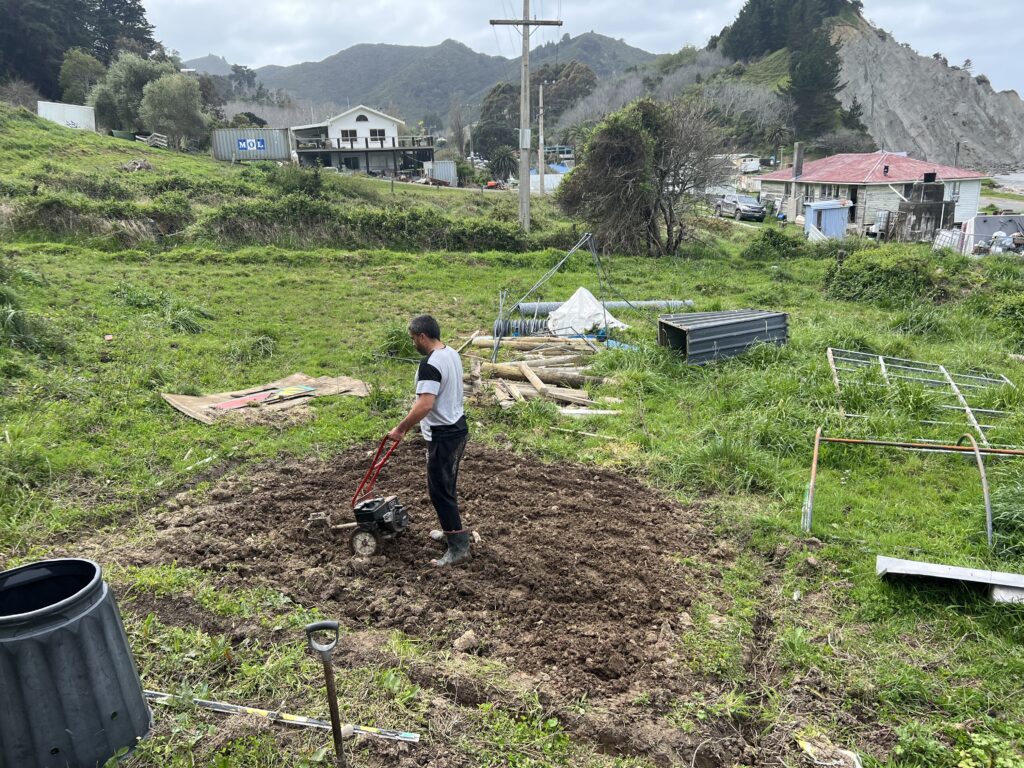
I would like to thank the flexibilty of Te Aho Tū Roa, who has given me the opportunity to try this method of running papa mahi or workshops like this in the whaitua of Te Tairāwhiti. I believe we have truly helped a few whānau by really setting a notion of rangatiratanga within the whānau I have worked with.
Papamahi Taiapa
After the major floods here on the Tairāwhiti some whānau were left with damaged fences, and no one to repair them as all the contractors (fencers) were busy with other repairs needed on much of the farms in the area. These workshops on the job learning workshops which also help some of our local whānau get their fences repaired. Whānau from Tokomarubay/Anaura learnt about basic fencing tools and using them safely, and how to use basic fencing tools to repair damaged fences (farming type fences).
“This mahi is mean, if this happens again ill have a good idea on how to fix my fences, it was cool to find out even what type of I need“
Thanks to Earthwise for their support, as we now have some quality fencing tools to help out other whānau in need.
Mahinga Maramataka
Continuing from our mahi in the first half of the year, Mahinga Maramataka became a regular gathering of mostly wahine, from Kuia, Māmā- older and young, Rangatahi and tamariki.
“I loved that it was a safe place, also was always excited to do what we had planned for that day. We pretty lucky with some of the stuff we got to do x 2. Hopefully one day more people see how cool this kaupapa is and come along some more. I swear people don’t realise. It was cool having something to do every week, especially learning something new and different”- Rangatahi participant
- Mokopuna enjoying freshly made rewena from the bug grown in workshops
- Homemade oat milk
- No-dig gardening
Each weekly session began with Karakia, Whakawhanaungatanga and Maramataka check in. We would talk about the tohu o taiao and ngā tohu within each of present.
“Since I’ve joined this rōpū and have been enlightened to living by the maramataka my Mauri and wairua is being uplifted every day. The understanding of the lunar and the phases validates what I thought I knew. The kaupapa is Tika, whanau voice” – Pakeke participant
Numbers averaged 12 participants per week who came mainly from the community or young mama apart of the Nati Pepi program of Te Runanganui o Ngati Porou. Their kaimahi Cheanne Johnston and I work closely together this second part of the year to co-facilitate different workshops particularly rongoā pani and soap making, and she would always bring a Māmā with her from Tūranganui ā Kiwa.
“Loved the korero and place, this was my second workshop and I look forward to coming up to Uawa every Monday, my pepi whakapapa’s to Hauiti on her dad’s side, so I love being able to bring her to connect with her tūrangawaewae” – Young Mama
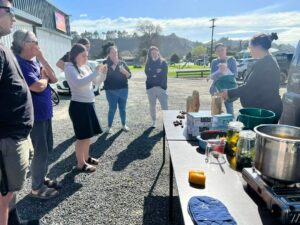
Tupahi pani and parareka in a bucket
The workshops during July- Dec focused on:
- Rongoā teas & Panipani, Rewena bug making
- Beeswax wraps & Oat milk making
- No-dig gardening
- Panipani Tupakihi & Maori Spud in a bucket
- Hopi Kawakawa Pani & Tuitui with Nani Kahu
- Homemade skincare treatments and bath bombs
- Distributing seedlings from nursery & kai from maara
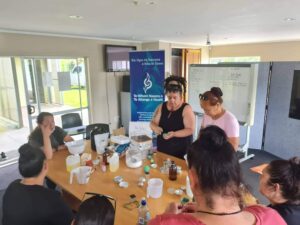
Homemade personal care products workshop with Bebe Blends
This kaupapa has been successful in many ways. In particular, the way that it brought people of all generations together to connect ā wairua about life by using Maramataka and creating a space for sharing and learning of new skills.
My highlight has been seeing the images of home-gardens appearing in our groups. I have been intentionally sowing seeds to distribute and also growing kai in our spare garden-beds to share when whanau come over or attend workshops. I estimate over 30 home-gardens have received seedlings to support their gardening efforts this year.
“Just being with like-minded peepz, understanding peepz, a place u can go and not be judged and take all your worries and pain, talk an let it go x and aligning our moods to the maramataka, learnt so much and it was good for the wairua. Everything is pretty cool, more around the maramataka, maintaining gardens, natural ways to make it pump an what to keep an eye on, when to water when not, ideas on water stations etc. fishing, going to the Beach studying the tides, more nights of manifesting and learning more on those practices”
- Beeswax wraps
- Distributing vege plants
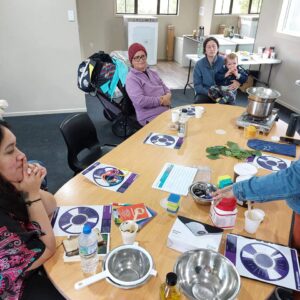
Kawakawa Pani and Tuitui with Nani Kahu



